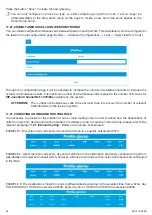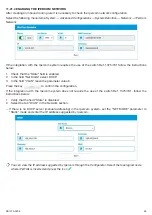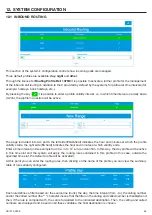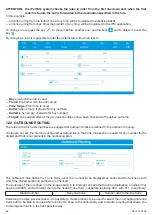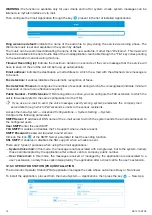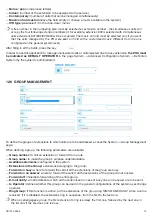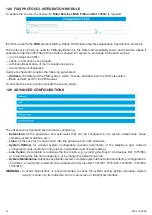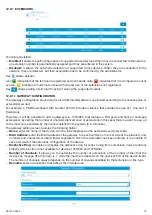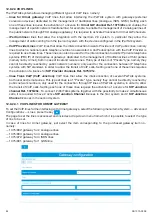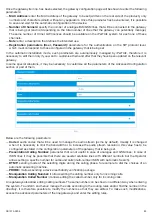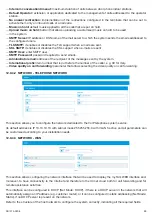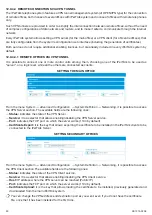
75
DS1375-020E
—
Name : poa
(in lowercase letters).
—
Indoor:
(number of the extension to be assigned to the service).
—
Contemporary:
(number of calls that can be managed simultaneously).
—
Music on hold custom
(leave the field empty or choose a music available in the system).
—
IVR type: poa
(select it in the drop-down menu).
A free number in the numbering plan must be selected as extension number , the simultaneous calls will
occupy the four following extension numbers (if, for example, extension 800 is selected with 4 simultaneous
calls extensions 801/802/803/804 will be occupied). The music on hold must be selected only if you want
that the calls managed by the POA are kept on hold with a customised music different from the one
configured on the general system level).
After filling in all the fields, press the key
.
In order to use this application to manage unanswered calls or calls rejected due to busy extension,
the POA must
be indicated as DEFAULT OPERATOR
in the page System
→
Advanced Configuration System
→
Definition
System (by the system’s administrator).
12.6 GROUP MANAGEMENT
To define the groups of extensions to which calls are to be addressed, access the System
→
Group Management
page.
When defining a group, the following parameters are available:
—
Group number:
to call an extension or forward from a rule.
—
Group name:
to make the group’s purpose understandable.
—
Available extensions:
configured in the system.
—
Extensions in the Group:
extensions belonging to the group.
—
Forward on busy:
where to forward the calls if all the extensions of the group are busy.
—
Forward on no answer:
where to forward the calls if all the extensions of the group do not answer.
—
Forward all:
immediate forwarding of the entire group.
—
E-mail notify:
e-mail address to which all the calls missed in case of busy line or no answer are to be sent.
—
Is Operator:
defines whether this group can be used in the general configurations of the system as exchange
operator.
—
Ring Group:
if this function is active, all the extensions of the group ring SIMULTANEOUSLY when a call is
received; if it is disabled, the extensions ring in sequence, from the first to the last one.
When a call engages a group, the first extension to ring is always the first one, followed by the next one in
the list only if the previous one is busy.
Summary of Contents for iPerTAlk 1375
Page 98: ...98 DS1375 020E...
Page 99: ...99 DS1375 020E...


